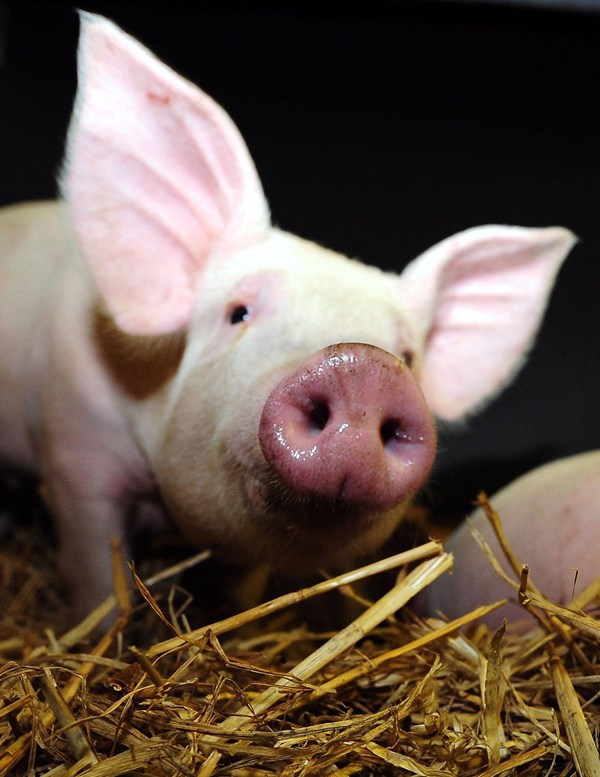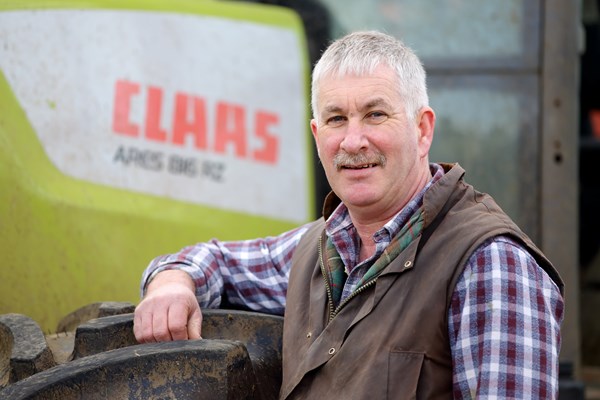Large-scale pig farming could ruin the beautiful scenery near where Game Of Thrones was filmed, one of the actors has said.
Jerome Flynn plays Ser Bronn of the Blackwater in the hugely successful HBO fantasy series.
It was partly shot at dramatic locations around Northern Ireland.
Flynn said: “It’s a majestic, beautiful land which, as soon as you bring in a factory farm, is completely ruined. It’s polluted.
“People won’t want to walk there anymore. It becomes dangerous for children to play there.
“Let’s subsidise the local farmers who want to ethically rear their animals and want to give them a life that’s worth living, the free life that they deserve.
“Let’s support them rather than pouring money into an industry which is threatening the whole balance of the ecosystem.”

Northern Ireland’s Audit Office, a public spending watchdog, has begun an investigation into payments which subsidise owners of anaerobic digesters which create electricity from animal waste.
Subsidies in Northern Ireland are more valuable than in the rest of the UK, campaigners against the process said.
Lobby group Farms Not Factories is concerned the green scheme aimed at reducing reliance on fossil fuels has encouraged the construction of large-scale farms.
It calls them “pig factories” in Northern Ireland and suggested 14 such facilities were seeking planning permission.
Digesters require significant amounts of animal waste to run.
They use the organic material to create a biogas like methane, which is then converted to electricity.
Payments to companies which generate electricity from renewables like biogas come from a levy on electricity bills.

Tracy Worcester, director of the Farms Not Factories campaign group, said: “We can use the power of our purse to only buy from real farms, not animal factories.
“When buying pork, look for the high welfare labels Outdoor Bred, RSPCA Assured, Free Range or best of all Organic.
“When waste is produced by a moderate number of animals on a farm, it is not pollution but a fertiliser.”
The Ulster Farmers’ Union (UFU) said there was no evidence the introduction of anaerobic digestion plants was driving growth in pig farming in the region.
UFU deputy-president Victor Chestnutt said: “Northern Ireland prides itself on its small family farming structure.
“We are recognised globally as a world-class food producing region, punching far above our weight in many respects.
“When it comes to anaerobic digestion, there is no evidence to suggest that the introduction of AD plants have encouraged a growth in pig farming.
“Anyone saying so is clutching at straws and lacks a basic understanding of NI’s agricultural industry.”

He added: “In terms of biogas yield, pig slurry only produces 15-25 m3/t compared to grass silage which produces 160-200 m3/t, which makes it unattractive for anaerobic digestion.
“It is also not accurate that Northern Ireland AD plants receive four times as much subsidy as those in GB.
“The two subsidy systems are set up differently and cannot be compared like-for-like.
“Up until mid-2014, sub-500kW AD plants in GB received 15.8p per kW hour in feed-in tariffs.
“These payments have reduced but AD plants in GB are eligible for other subsidy payments, like the renewable heat incentive scheme, which cannot be claimed in NI.
“There are many environmental and economic benefits to anaerobic digestion, which recycles agricultural and other organic wastes into renewable energy and natural fertiliser.
“It is a vital technology for decarbonising agriculture, managing waste and generating renewable energy in Northern Ireland.”
– Press Association




















![[Book Review] The Blade Itself (The First Law Trilogy) by Joe Abercrombie](https://bendthekneegot.com/wp-content/uploads/2018/01/1516047103_maxresdefault-218x150.jpg)

















